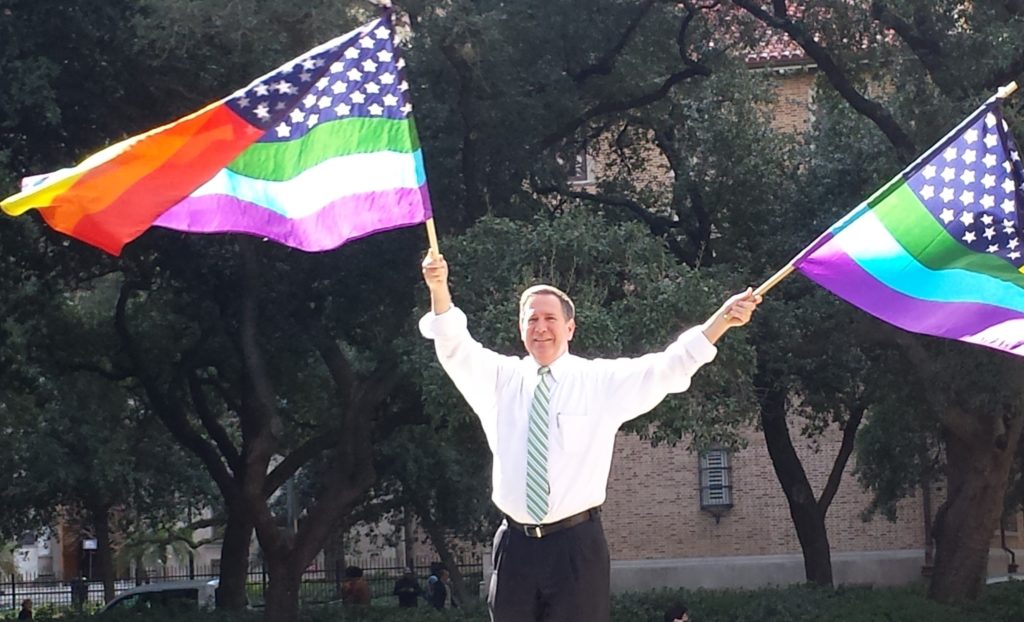When Mitchell Katine began at South Texas College of Law in 1982, he simply hoped to gain a better understanding of the law. However, he soon realized the difference he could make for the LGBT community and chose to put his education into practice.
Shortly after Mitchell graduated in 1985, the Supreme Court issued its decision in Bowers v. Hardwick (1986) which deprived LGBT individuals of their constitutional rights. At the same time, the HIV/AIDS crisis reached its peak. As a young, gay attorney frustrated with his inability to secure LGBT rights due to Bowers, Mitchell dedicated his volunteer and professional time to helping people living with HIV. He spent 15 years defending clients against HIV/AIDS-based prejudices in everything ranging from home evictions to job discrimination to the denial of gym memberships. This work proved vital in the 1980s and 1990s as there were few laws in place to protect LGBT and HIV positive individuals. “It was really an uncharted area,” Mitchell says.
When asked about his role in the landmark legal victory of Lawrence v. Texas (2003), Mitchell humbly states, “It was an honor and pleasure to be involved.” In 1998, John Lawrence and Tyron Garner were jailed for homosexual conduct and referred to Mitchell by a local activist who knew about his work within the LGBT community. Upon accepting the case, Mitchell quickly contacted Suzanne Goldberg, an attorney at Lambda Legal, and requested the organization serve as lead counsel because of their expertise in constitutional law. For the next five years, Mitchell served as local counsel on the case. Despite losing in every court in Texas due to the Bowers decision, the team was victorious when, on June 26, 2003, the Supreme Court ruled in their favor and overturned Bowers v. Hardwick.
“It was huge to get rid of that terrible case [Bowers v. Hardwick] and to go on to say that LGBT people do have constitutional rights and can’t be second class citizens,” Mitchell says regarding the decision.
The ruling in Lawrence laid the groundwork for victories in United States v. Windsor (2013) and Obergefell v. Hodges (2015), two landmark decisions also handed down on the now famous date of June 26.
Although Mitchell became a member of the LGBT Bar recently when he attended the Family Law Institute’s conference in Houston this past Spring, he is no stranger to our work. It was at a past Annual Conference and Career Fair that Mitchell met Suzanne Goldberg, the attorney who was his contact with Lambda Legal when he took on Lawrence in 1998.
He appreciates the information and networking opportunities available through the LGBT Bar and the Family Law Institute. The LGBT Bar provides an abundance of opportunities to meet other legal professionals, many who remain available for referral or legal questions.
Today, Mitchell lives with his partner of 18 years, Walter, and their two children, Sebrina and Sebastian. He is very proud of his work both on Lawrence and within the LGBT community. “I really see my work as cases for the next generation,” he says. “I am proud that my partner and I have two children and I feel that I’ve made the world a better place for them and for other children.”
The LGBT Bar certainly agrees that Mitchell has improved the world for future generations and is honored to have him as a member. We thank him for all he has done and continues to do for the LGBT community!

